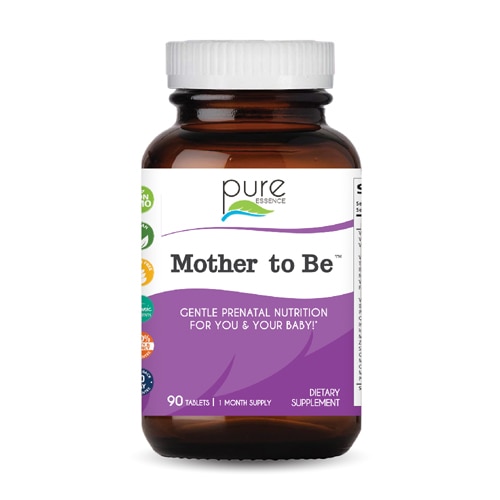For many couples, having a baby is more problematic than they might have imagined. According to the American Society for Reproductive Medicine, infertility affects about 10 percent of the population. The struggle can be terribly real, without a whole lot of action steps beyond monthly attempts at hitting ovulatory gold.
While you can’t change your age or your genetics, it turns out there is one thing you can do to tilt the odds in your favor: Modify your eating habits to set you up for success. Turns out, nutrition and a healthy body weight for both partners can have a significant impact on the ability to conceive.
Enter the fertility diet, which emerged in 2007 out of a study of diet and fertility from Harvard Medical School. The plan is based on research from the landmark Nurses' Health Study—one of the largest and most comprehensive studies on women's health. The findings on fertility in the Nurses’ Health Study come from more than 18,000 women who were trying to get pregnant over an eight-year period. However, only about 400 of the women were given diagnoses of infertility related to irregular ovulation. (Ovulatory infertility affects 25 percent of infertile couples.)
Still, since its release, many nutritional experts recommend following the "fertility diet."
Last year, U.S. News and World Report, which every year evaluates the most popular diets with health experts, ranked the "fertility diet" as its 10th best diet overall. Here are six key steps the plan recommends for boosting your fertility if you suffer from ovulation disorders such as polycystic ovary syndrome, fibroids or uterine polyps, damaged fallopian tubes, endometriosis and immune system disorders.
Eliminate trans fats
Trans fats provide no health benefits and can cause ovulatory dysfunction and poor hormone balance. The Harvard Public Health study found women who regularly consumed trans fats were 70% less likely to conceive than women who did not. The good news is that if you are eating only fresh, whole natural foods, you don’t need to worry about trans fats—they are only found in processed foods.
Found in: Commercially made baked goods, frozen meals and stick margarine. Avoid foods which say they contain “partially hydrogenated vegetable oil” as this is another way to say trans fats.
Opt for unsaturated and monounsaturated fats
Polyunsaturated fats are considered to be the “good fats.” They help reduce blood cholesterol and some of them such as omega 3 fatty acids have a host of benefits such as reducing inflammation, lowering blood pressure and improving mood. Likewise, monounsaturated fats are vital for good hormone balance.
Found in: Polyunsaturated fats are found in vegetable oils, nuts and seeds. Monounsaturated fats are found in olives, olive oil, avocados and canola oil.
Eat more vegetable-based protein
Instead of choosing meat as a go-to protein source, integrate plant protein (from beans, nuts, seeds and tofu) into your diet. One study showed that the risk of ovulatory disorders is cut in half when 5 percent of your total calorie intake is derived from plant proteins. The Harvard Public Health study also found that infertility was 39 percent more likely in women who ate the most animal protein.
Found in: Beans are an excellent source, as are nuts, seeds and other legumes, such as lentils and chickpeas. Avoid process soy, however, typically found in bars and powders, because this kind of processed soy may have a negative effect on fertility.
Choose slow carbs
Highly processed carbs—cookies, cake, white bread and white rice—quickly spike blood sugar levels and raise havoc with insulin levels. Numerous studies have found that high insulin levels appear to inhibit ovulation. Slow carbs, so called because they digest more slowly, have a milder effect on insulin levels.
Found in: Fruits, vegetables, beans and whole grains.
Embrace full-fat dairy
Although it may seem counter intuitive, enjoy one or two servings a day of whole milk or other full-fat dairy foods, such as yogurt, and limit your non- and low-fat dairy. The research suggests that a high intake of low-fat dairy may raise the risk of ovulatory infertility, compared to high-fat dairy.
Found in: Whole milk, full fat yogurt, ice cream and cheese.
Develop a sugar bomb radar
Concentrated sugar bombs can throw your blood sugar totally out of whack and your hormonal balance out the window. Reducing excessive sweet stuff keeps chronic inflammation away, which is good for everyone’s health but especially when trying to conceive. Harvard School of Public Health’s Department of Nutrition found a correlation in women who ate less sugar from carbohydrates with a reduced risk for infertility caused by ovulatory disorders.
Found in: Sodas, fruit juice, bottled teas and coffees, candies and desserts.
A multivitamin a day
A daily multivitamin that contains at least 400 micrograms of folic acid may work wonders. The Harvard study found women who took daily multivitamins containing 400 micrograms of folic acid were 40 percent less likely to experience ovulatory infertility over the eight years than women who didn't.
Found in: Food sources of folic acid include legumes, asparagus, eggs, leafy greens, beets, citrus fruits and nuts and seeds.




